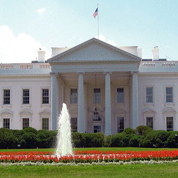White House’s final endorsement of G20 dethrones G8 from the pedestal

The last nail on the coffin of the G8 was hammered by the current crisis, which has completely shown all its inadequacies as a ‘yesteryear organization’ that will be absolutely incapable of managing the global economy in the postcrisis era. Similarly, the crisis has also confirmed that the elite club’s present structure does not reflect the both the existing and new, unfolding realities in the global economic system.
These conclusions and assessments are not totally new or accidental. In fact, most leaders of non-G8 countries and authoritative experts in the field of international relations have for a long time been actively agitating for comprehensive reformations of the G8 so as to make it more reflective of these realities. Notably, such reforms envisage, amongst others, the inclusion of new major sovereign players in the global economic system and full demonopolization of its vast hegemony on all global economic and political processes.
From speculations to concrete steps forward
If all of this had simply been rumors and speculations in the past, but after the U.S. President Barack Obama’s unequivocal statements in May, one can now say with absolute certainty that the G8’s future destiny, at least, in its present form, is predetermined, as a place is being prepared for it in the historical archive of global politico-economy. This is because feeding questions from different media outlets, including the Russia’s Rossiya-1 TV channel, Obama frequently spoke about G8 as an organization of the past. “The G20 is on its way to replace the G8,” he noted in several of his answers.
Thus, G20, in Obama’s words, is a more effective instrument, both from the point of view of more effective strategic management of the global economy in a long-term perspective, and also from the point of view of tackling the urgent tasks and problems facing each member of the G20 club in its national economy. Specifically, the U.S. president noted that the key issue now is that of successfully transiting from the G8 to the G20 as a new organization that better and more adequately reflects both the existing realities in the global economy as well as the new emerging structure of the future, post-crisis economic world.
“The last nail on the coffin of the G8 was hammered by the current crisis, which has completely shown all its inadequacies as a ‘yesteryear organization’ that is absolutely incapable of managing the global economy in the postcrisis era.”
The U.S. president, citing the currently raging economic storms in the world that were caused by the ongoing global financial crisis, and notably, the Greek financial catastrophe that has already affected almost every European state, and the very serious measures taken by Athens in collaboration with EU and IMF leaders to stabilize the overall financial situation in Europe and the world, noted that all such developments are a testimony to the deep globalization of today’s global economic activities.
This, in other words, means that problems, which have developed in the economy of one country or region, can easily spread over to other countries or regions, leaving in their tracks catastrophic consequences, not only for the directly affected regions, but also for the rest of the world. “This is why the main issue today is to pursue a greater degree of integration among all key countries’ economies, one of the reasons why the United States is actively promoting the idea of the importance of such formats as the G20,” he added.
The future is for further globalization and G20
Obama conceded that the present crisis had completely changed the pre-crisis coordinates of countries in the global economic system that had existed before the onset of the current recession. “This is why we should recognize that such countries as China, Brazil, India, Indonesia, Southern Africa and others, which were traditionally considered ‘peripheral’ when taking important decisions on all global economic issues, are now right in the epicenter of events, as they have become key players in the world economic system,” he added. “These are countries with large national economies. Therefore, the events occurring in these economies will always have influence on events taking place, for instance, in Moscow or New York, just as events in the latter will also impact on those economies, thus reflecting the depth of globalization of today’s global economic activities.”
Indeed, it is only clear that it is only G20, whose members control the lion's share of the global economy and generate almost 90% of the world’s GDP, will be able to create a true and stronger, when compared with G8, foundation for the development of a new and more balanced world order in the postcrisis era. This is true and important, both from the point of view of a more adequate distribution of all the new economic roles and functions among the leading global players, and also from the point of view of the responsibilities assumed by each G20 member before the entire global community.
From here, and paraphrasing the famous Russian proverb, one can unequivocally say that ‘whatever will be good for the G20 will definitely be good for the rest of world,’ which will not really notice the G8’s disappearance from the geopolitical arena in the postcrisis era.












 Web design,
Web design,